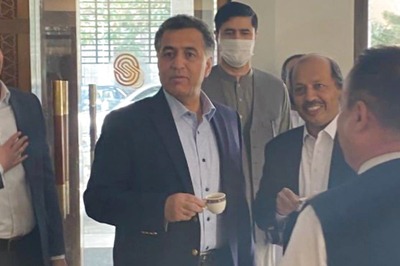Five Years Until Maoists Devolve Into Afghan-Like Gangs: Last-ditch Peace Initiative in Chhattisgarh

views
“We have a window of only five years,” says Shubhranshu Choudhary with a sense of urgency, “until CPI (Maoist) devolves into gangs led by their own commanders, how it was like in Afghanistan.” Choudhary, who spent over a decade reporting for the Guardian and then worked as a television and radio producer for the BBC's South Asia bureau, has been for the past three years working as the convenor of an initiative called the ‘New Peace Process’ (NPP) for the tribals displaced due to the violence between the state forces and the Maoists.
Choudhary is talking about a public opinion poll that NPP has just launched in Gondi, Halbi and Hindi languages to get tribals to voice their opinion on how the cycle of violence between security forces and Maoists should end.
“The top Maoist leaders can die anytime within the next five years, after which their whole organisation is likely to fall in the hands of local commanders, since they don’t have a second rung of political leadership. Just how we have seen in Jharkhand or in Afghanistan, gang wars between armed militias could ensue, which would cause immense bloodshed and strife. We are trying to somehow find a way to prevent this and to put an end to the ongoing cycle of violence,” Choudhary says.
The opinion poll is a part of that last-ditch effort. Tribals across Chhattisgarh are being encouraged to call a number (7477288444) in which they are being asked to give their opinions, in whichever language they prefer, on whether violence between state forces and Maoists should be resolved through talks or militarily. The phone number will remain open till October 2 this year and the result of this poll will be announced at ‘Break the Silence’ e-rally of the NPP on Gandhi Jayanti.
“We are also in the middle of preparations to launch a series of meetings called “Chaikle Maandi”, which in Gondi means “meeting for peace and happiness”, in which victims of violence from both sides will be invited to sit across a table and voice their opinion on possible solutions to end the Maoist violence in Central India.
Their initiative could take the shape of truth and reconciliation commission, such as the one that was set up in South Africa, at the end of Apartheid in ’95, Choudhary says.
More than 12,000 people, including 2,700 policemen, have died in Maoist violence over the past 20 years and more than 50,000 people, mostly tribals, have been displaced.
“Ashanti ko lekar yahan bohot shanti hai…Is chuppi ko todne ka prayaas kar rahe hain [There is a lot of silence about the bloodshed that’s happened here…we’re trying to break the silence over it],” Choudhary says.
Choudhary has already been involved in creating a sense of awareness among the tribal community through his CGNET program, in which bluetooth and internet are used on phones and computers to create a community radio facility in far flung areas and help people solve their local issues. This time Choudhary is dealing with a more complex issue – on how tribals would want to shape their future.
“A lot of blood has already been spilled. There are victims of violence on both sides. Now the question before us is, ‘Can we look for a decent closure?’,” says Choudhary.



















Comments
0 comment